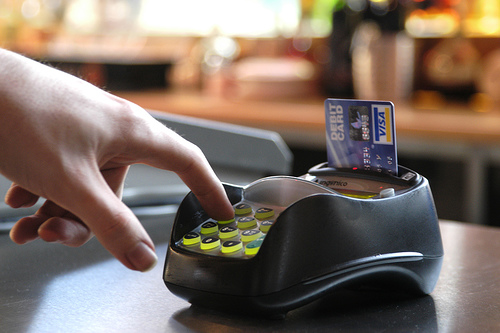Providing quality customer service is at the heart of any business regardless of its size and product or service offering. In turn customers want quality products and services and increasingly wish to pay using a credit card terminal. For any business, being able to provide that facility quickly is likely to result in increased and return custom.
The letters PDQ stand for Process Data Quickly. A PDQ Machine is a useful piece of equipment and there are a number of options available that business owners can choose from with differing features and functionality. Ultimately it is up to each business to decide which model best suits their needs, along with other decisions such as whether to buy a machine outright, rent, or contract. Essentially three different types of PDQ machines are available, each offering pros and cons to different businesses.
How PDQ Machines Work
While different machines have their own nuances, the basic process is the same. A customer inserts a credit or debit card into the terminal, card information is sent and the purchase is accepted or declined. The majority of machines read both Chip and PIN and magnetic stripe information and will also offer the ability to manually input card data if a Chip or stripe cannot be read. Once the sale is accepted the PDQ Machine will issue a receipt and the transaction is completed, usually within a matter of seconds. Certain machines now offer contactless payment for transactions under £20 where the user’s card is simply held in front of the terminal to process the transaction. Cashback and top-up services are also available through PDQ machines, although businesses should be aware that these options usually come at a higher price point. It is also worth noting that whatever type of machine is chosen a merchant account will need to be set up.
Counter-Top PDQ Machines
Counter-top, or stationary, PDQ’s are suited to any business with a static point of sale. This option suits many standard retail stores. Stationary PDQ’s tend to be the least expensive but do carry a couple of disadvantages; set up costs may be more if phone lines need to be installed and when electronically connected will be inactive if there is a power outage.
Portable PDQ Machines
Any business that requires, or can benefit from, the ability to move the point of sale contact to up to 100 metres from a central point should consider the use of a portable PDQ. Hospitality businesses instantly come to mind. Rather than having customers line up at an exit point, payment can be made at any table within an establishment. Indoor and outdoor cafes, bars and restaurants can deal with transactions quickly and easily providing added service to the customer and preventing congestion in entranceways.
Mobile PDQ Machines
As the name suggests, a mobile PDQ can be taken anywhere. Using WiFi or mobile phone technology businesses on the move can offer the same advantages to customers as static retail shops. Businesses operating at trade shows, fairs and farmers markets no longer need to rely on people carrying cash. Builders, plumbers and other tradesmen can also accept payments on the spot without inconveniencing the customer or themselves. Pizza and other deliveries can be made without the need for giving out details over the phone, giving reassurance to both the buyer and seller, and taxi drivers are able to make use of GPRS technology to allow passengers to pay by card.
Costs and Plans
Monthly rental, one-off hire payments and term by term contracts are all available through a number of companies. Any business, whatever the size, should consider its needs and balance this with the benefits that may be gained. Comparisons, plans and quotes can be found easily online.
Regardless of size, businesses may be missing out on customers if a PDQ is not available. Affordable options are readily available so it is well worth carrying out research to find the best deal possible for ultimate gain. Few businesses can now afford to do without a PDQ as the benefits can be immense.
This article was written by small business owner and finance blogger Joe.
